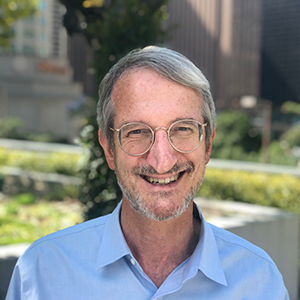Cells beat stress — so can you!
Organisms can’t avoid stress, so it is not surprising that numerous cellular mechanisms have evolved to temper any toxic effects of stress. Stress responses are triggered within every cellular compartment to activate downstream signaling pathways. Distinct stress responses can lead to production of protective molecular chaperones, alter post-translational modifications and protein trafficking, activate pathways that degrade macromolecules, and change cellular and organellar function and architecture. Together, these responses maintain organelle and cellular homeostasis and, more specifically, protein homeostasis, also known as proteostasis.
Studies in model systems have uncovered the circuits that control these varied responses, the components that mediate cellular protection, and how disruption or changes in the efficacy of these responses can be linked to specific diseases. Speakers will describe, at the molecular level, how cellular and organelle homeostasis is maintained under normal conditions and when cells and organisms encounter stress.
Keywords: protein quality control, organelles, stress responses, heat shock proteins, endoplasmic reticulum–associated degradation, autophagy, unfolded protein response
Who should attend: everyone interested in the diverse mechanisms by which cells cope with stress related to environmental or disease insults, including how different cellular compartments signal stress or respond to restore cellular homeostasis
Theme song: “Under pressure” by David Bowie and Queen
This session is powered by stressed-out cells and organelles.
Talks
- The degradation of misfolded proteins in the ER — Jeffrey Brodsky, University of Pittsburgh
- Post-translational control of HMG CoA reductase, the rate-limiting enzyme of cholesterol synthesis— Russell DeBose–Boyd, University of Texas Southwest Medical Center
- Signaling principles, signal decoding and integration revealed by stress — Diego Acosta-Alver, University of California, Santa Barbara
- The role of rhomboid pseudoproteases in ERADicating misfolded membrane substrates — Sonya Neal, University of California, San Diego
- Mechanisms of membrane protein sorting — Sichen (Susan) Shao, Harvard Medical School
- Peroxisomal quality control in Arabidopsis — Bonnie Bartel, Rice University
- Mitochondrial-derived compartments protect cells from nutrient stress — Adam Hughes, University of Utah
- Regulation of mitochondrial genome synthesis in animal cells — Samantha Lewis, University of California, Berkeley
- Mechanisms of stress granule regulation by ribosome-associated quality control factors — Stephanie Moon, University of Michigan
- Control of translation by ubiquitin during oxidative stress — Gustavo Silva, Duke University
- Proteins directing lipid fluxes at the ER–lipid droplet continuum — Elina Ikonen, University of Helsinki
- The interconnected dynamics of ribonucleoprotein condensates and the endoplasmic reticulum — Jason Lee, Baylor College of Medicine
Learn more
Check out all ten thematic symposia planned for the 2022 ASBMB annual meeting:
Enjoy reading ASBMB Today?
Become a member to receive the print edition four times a year and the digital edition monthly.
Learn moreFeatured jobs
from the ASBMB career center
Get the latest from ASBMB Today
Enter your email address, and we’ll send you a weekly email with recent articles, interviews and more.
Latest in Science
Science highlights or most popular articles
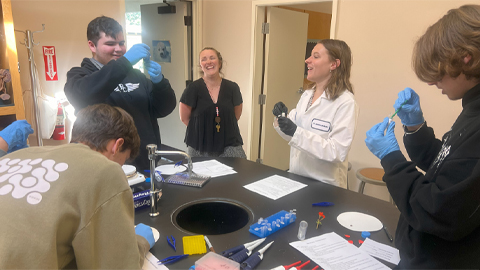
Using DNA barcodes to capture local biodiversity
Undergraduate at the University of California, Santa Barbara, leads citizen science initiative to engage the public in DNA barcoding to catalog local biodiversity, fostering community involvement in science.
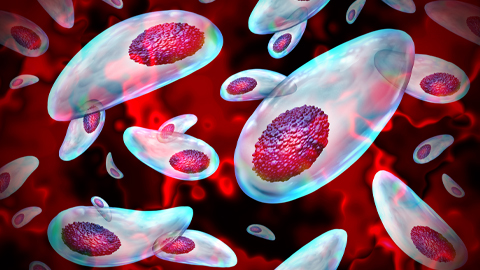
Targeting Toxoplasma parasites and their protein accomplices
Researchers identify that a Toxoplasma gondii enzyme drives parasite's survival. Read more about this recent study from the Journal of Lipid Research.
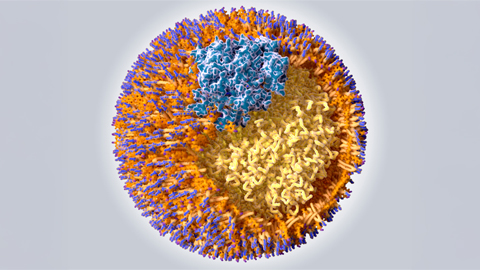
Scavenger protein receptor aids the transport of lipoproteins
Scientists elucidated how two major splice variants of scavenger receptors affect cellular localization in endothelial cells. Read more about this recent study from the Journal of Lipid Research.
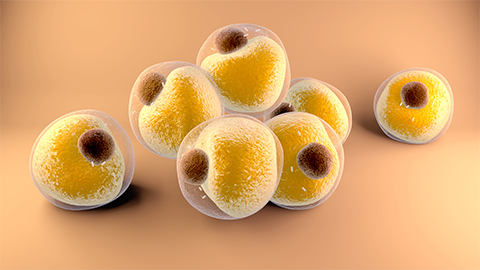
Fat cells are a culprit in osteoporosis
Scientists reveal that lipid transfer from bone marrow adipocytes to osteoblasts impairs bone formation by downregulating osteogenic proteins and inducing ferroptosis. Read more about this recent study from the Journal of Lipid Research.

Unraveling oncogenesis: What makes cancer tick?
Learn about the ASBMB 2025 symposium on oncogenic hubs: chromatin regulatory and transcriptional complexes in cancer.

Exploring lipid metabolism: A journey through time and innovation
Recent lipid metabolism research has unveiled critical insights into lipid–protein interactions, offering potential therapeutic targets for metabolic and neurodegenerative diseases. Check out the latest in lipid science at the ASBMB annual meeting.

